After the two rather “low stakes” spy adventures found in Live and Let Die and The Man with the Golden Gun it was finally time for Roger Moore to step things up a tad and have a balls-to-the-wall action spectacular, a movie that would not only pit James Bond against an honest to goodness supervillain, one with massive sets and a pair of truly impressive henchmen, but he’d also find himself teamed up with Russia’s top agent, one whose love he’d just so happened to have recently killed. Can even Bond’s bottomless levels of charm solve that bit of “awkwardness” and save the world?
It’s at this point in the franchise that it has becomes abundantly clear that the filmmakers have no real interest in adapting Ian Fleming’s novels, instead, they simply slap one of his book titles onto a script that will bear no resemblance to the source material. There is no greater example of this than in the adaptation of The Spy Who Loved Me as the book was about a young Canadian woman who while touring America is asked to “house sit” for pair of unscrupulous owners of a motel who, unbeknownst to her, have hired a pair of arsonists to burn down the motel for insurance purposes. She is spared rape and murder by these nefarious criminals when Bond arrives, having had a flat tire while passing by, he then defeats the two villains and beds the grateful girl. The book ends with the young Canadian continuing her tour of America, devoted to the memory of the "Spy who loved her." To say none of this happens in the movie would be a vast understatement.
Note: One of the arsonists had steel teeth, which is the sole element to survive from the original source material.
The plot to this The Spy Who Loved Me is basically a nautical version of the Connery's You Only Live Twice, only instead of Blofeld’s spaceship swallowing British and Soviet spacecraft we have shipping tycoon and scientist named Karl Stromberg (Curd Jürgens) who is using a massive supertanker to swallow up nuclear submarines owned by Britain and the Soviet Union. With two missing submarines, the respective countries enlist their top agents, James Bond (Roger Moore) for Britain and Major Anya Amasova (Barbara Bach) for the Soviets, to find out how someone could track and capture a nuclear vessel. This leads this ultimate Odd Couple to Cairo where they both hope to acquire the plans for a highly advanced submarine tracking system that has been put on the Black Market. Stromberg not too happy about his top-secret tracking system being offered to the highest bidder he sends two assassins to kill anyone who has so much as come in contact with the plans. This leads to Bond and Anya tackling the brutish Sandor (Milton Reid) and the steel-toothed monster known as Jaws (Richard Kiel ), but as fun as it is to see duelling spies fighting off various thugs it’s not until the film’s halfway point do things really kick-off, it’s then that we finally meet the film’s third star, which would be production designer Ken Adam whose amazing sets and models are what really set Bond films apart.
This looks like a place the Legion of Doom would love to hang out.
It’s the returning of Ken Adam that makes this film a real treat, he’d been missing from the franchise since Diamonds are Forever, and it was the sense of scope and scale of the Bond villains that was sorely lacking in Live and Let Die and The Man With the Golden Gun but he does his best to make up for his absence by creating not one but two amazing villainous lairs in this outing, Stromberg’s supertanker the Liparus and its massive interior set and Stromberg's underwater Atlantis base. The Spy Who Loved Me is also notable for introducing the world to the second greatest Bond vehicle in the form of the Lotus Esprit from Q Branch, which is a car that converts into a submarine and can launch surface-to-air missiles while battling a variety of underwater foes.
It does trump the Aston Martin DB5 in the aquatic area.
Stray Observations:
• Bond is alerted to his new mission by a ticker-tape coming out of his watch, which is something that would really blow any undercover assignment and could result in a dead agent.
• Major Anya Amasova is also known as Agent Triple X which is either her KGB designation or her porn rating.
• The henchman Jaws is more a comic book villain than your typical Bond antagonist, not only can he survive being buried under tons of fallen rock but he also has the jaw strength to bite through steel chains.
• James Bond kills the beautiful Caroline Munroe with a surface-to-air missile, a crime that I will never forgive Bond for committing.
• This is the rare Bond film where we get our heroes escaping two villain-run facilities, the exploding supertanker Liparus and the Stromberg’s lair Atlantis.
• Going by the exterior views of Stromberg’s supertanker it clearly does not have an interior large enough to dock three nuclear submarines, but more to the point “Why did the Liparus even have three submarine docking bays when the plan only called for two captured nuclear submarines?”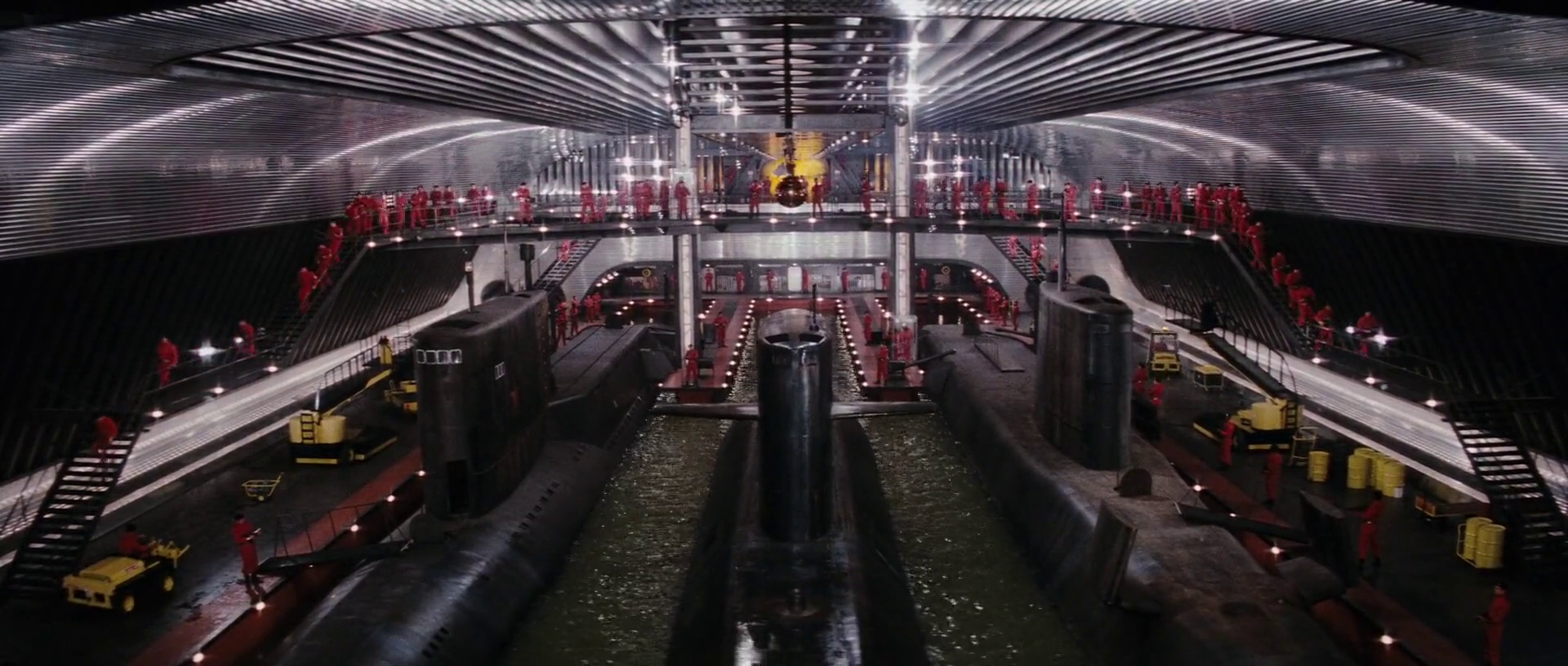
Question: Would either a British or Soviet commander have actually handed over a submarine loaded with nuclear missiles to an unknown party? I’m betting self-destruction would be preferable to this happening.
The plot may have borrowed a little too much from You Only Live Twice, probably due in part to Cubby Broccoli hiring the director of that film to helm this one, but the one improvement direct Lewis Gilbert brought to his entry was in softening up Roger Moore’s incarnation of Bond and giving us a Bond girl who was equal to Bond himself, sadly, even though she does save Bond at one point in the film she still ends up becoming the standard damsel in distress at the end, but the key improvement in this outing was in moving Bond away from the aspect of Connery’s brutal killer to Roger Moore more charming and witty persona. In fact, he is so witty and charming that Anya forgets her vow to avenge her dead lover and sleeps with Bond instead.
I bet Major Anya Amasova’s next assignment is monitoring the Siberian Chipmunk.
The villainous plot of The Spy Who Loved Me is another case of something that is better not looked at too closely as it makes little to no sense. Stromberg’s plan was to have simultaneous launching of nuclear missiles from the captured British and Soviet submarines to obliterate Moscow and New York City, which would then trigger a global nuclear war and result in Stromberg and company surviving down in Atlantis where a new civilization would be established underwater. Sadly, other than a brief glimpse at a model of Stromberg’s underwater utopia we have no idea how plans to reboot humanity after instigating a global thermonuclear war. Has he been secretly recruiting the hundreds of scientists, engineers that would be required for such a feat? If so it would have been nice to at least have had a glimpse at such things. Also, his plan relied on Britain and the Soviet Union instigating a full nuclear reprisal but as both countries were currently working together, and they about the stolen nuclear submarines, why would they start a nuclear war when they knew a third party was responsible?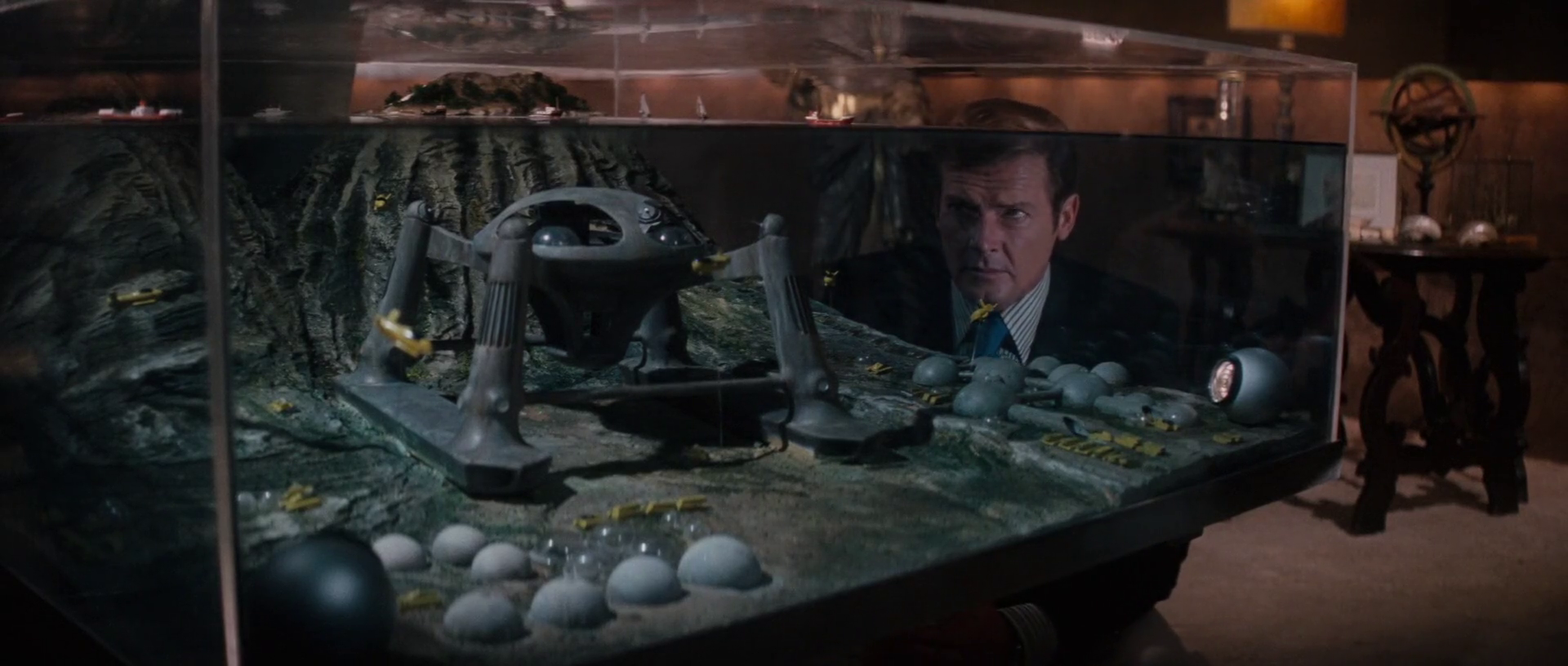
Note: The plot to wipe out humanity in favour of the villain’s own personal utopia would later be revisited in the film Moonraker.
Stromberg may be less memorable than previous Bond villains as he was even overshadowed by his steel-toothed henchman, but the sheer spectacle on display makes this a must-see entry in the franchise. From the amazing ski jump stunt that sets Bond off and running to the spectacular battle between Stromberg’s forces and Bond’s allies, there is certainly a lot to enjoy this time out. With beautiful locals, gorgeous women, outrageous villains, great stunts and impossible situations – that require even more impossible gadgets to escape – The Spy Who Loved Me is easily one of the more entertaining Bond films if not necessarily one of the best overall entries.
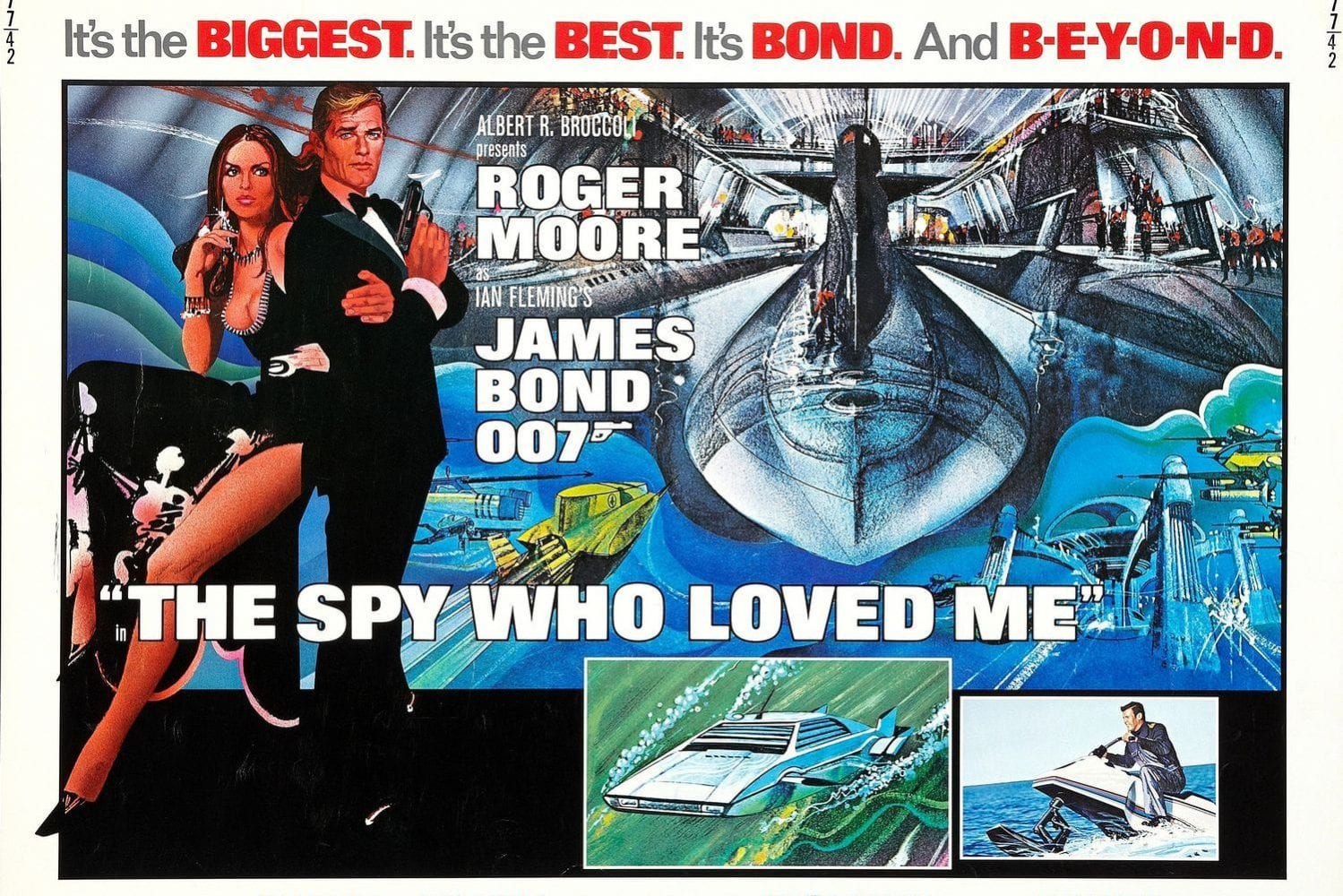

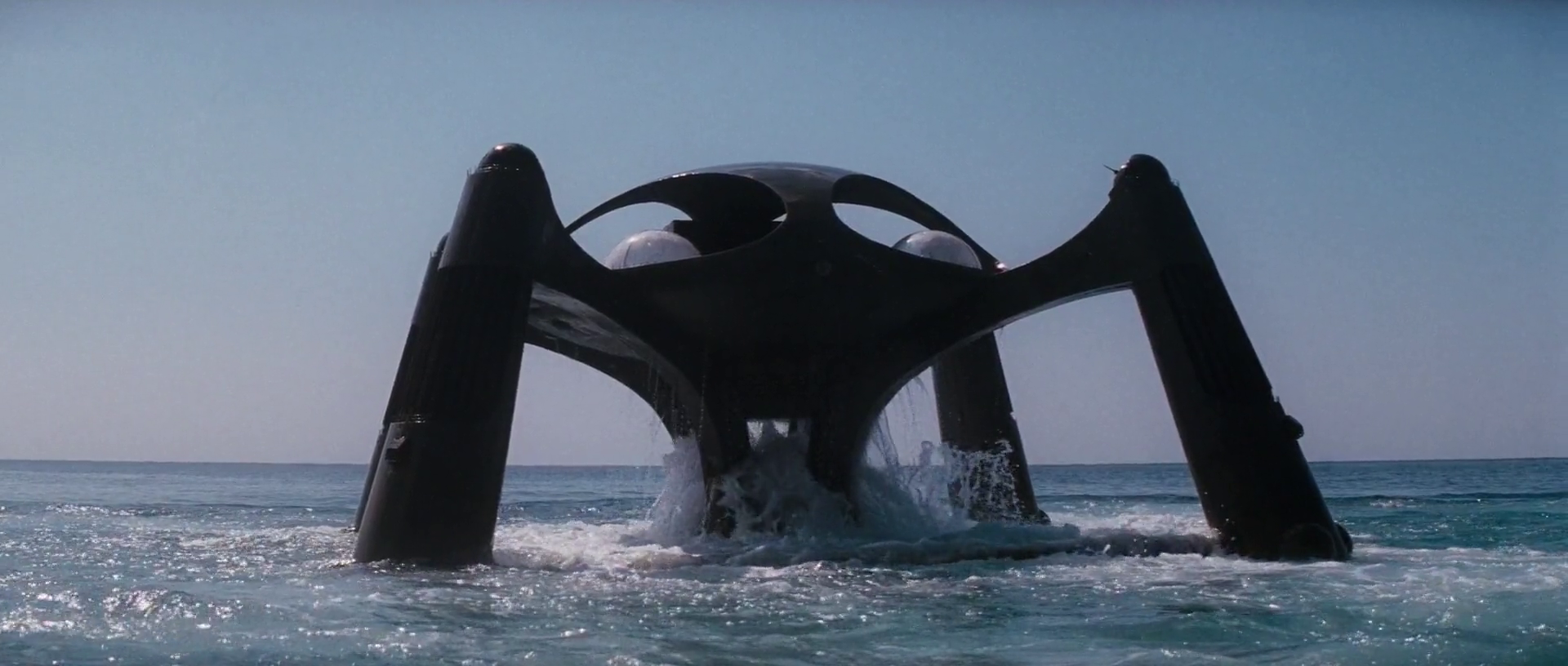
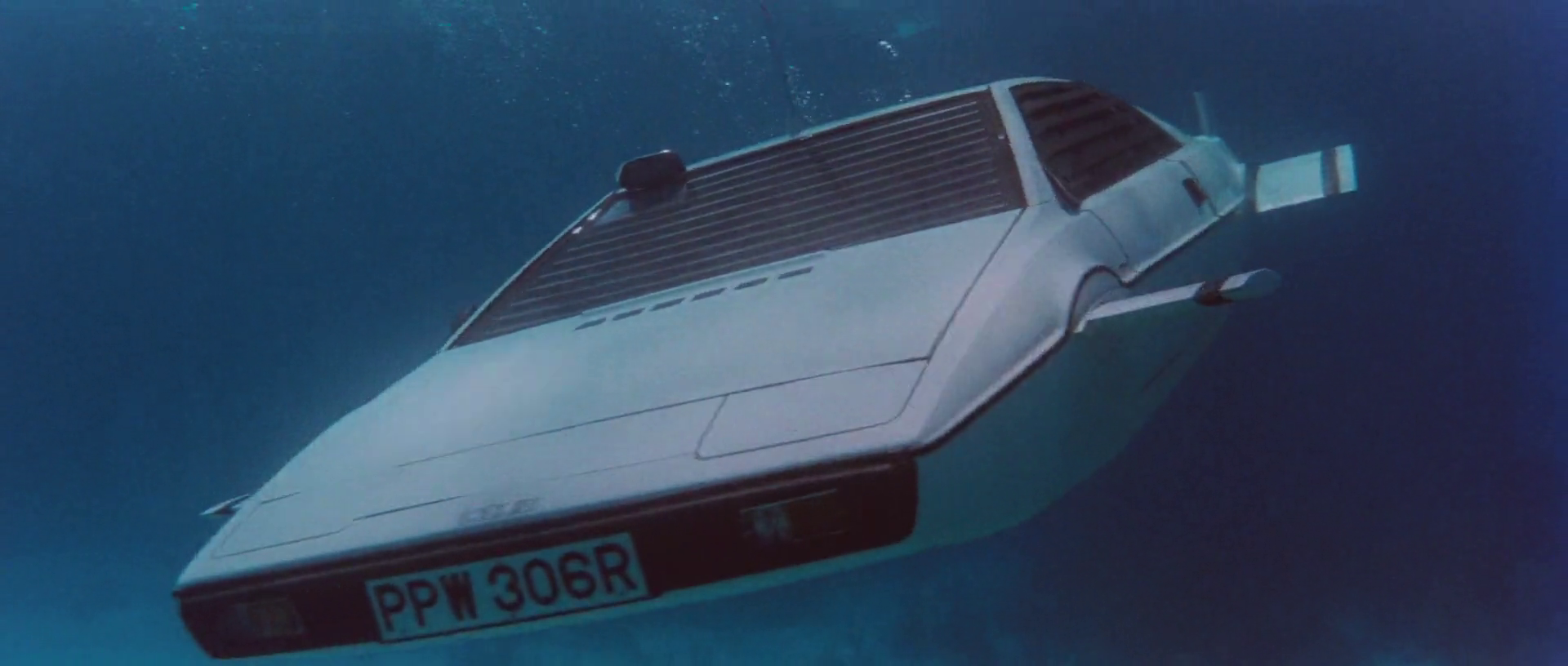
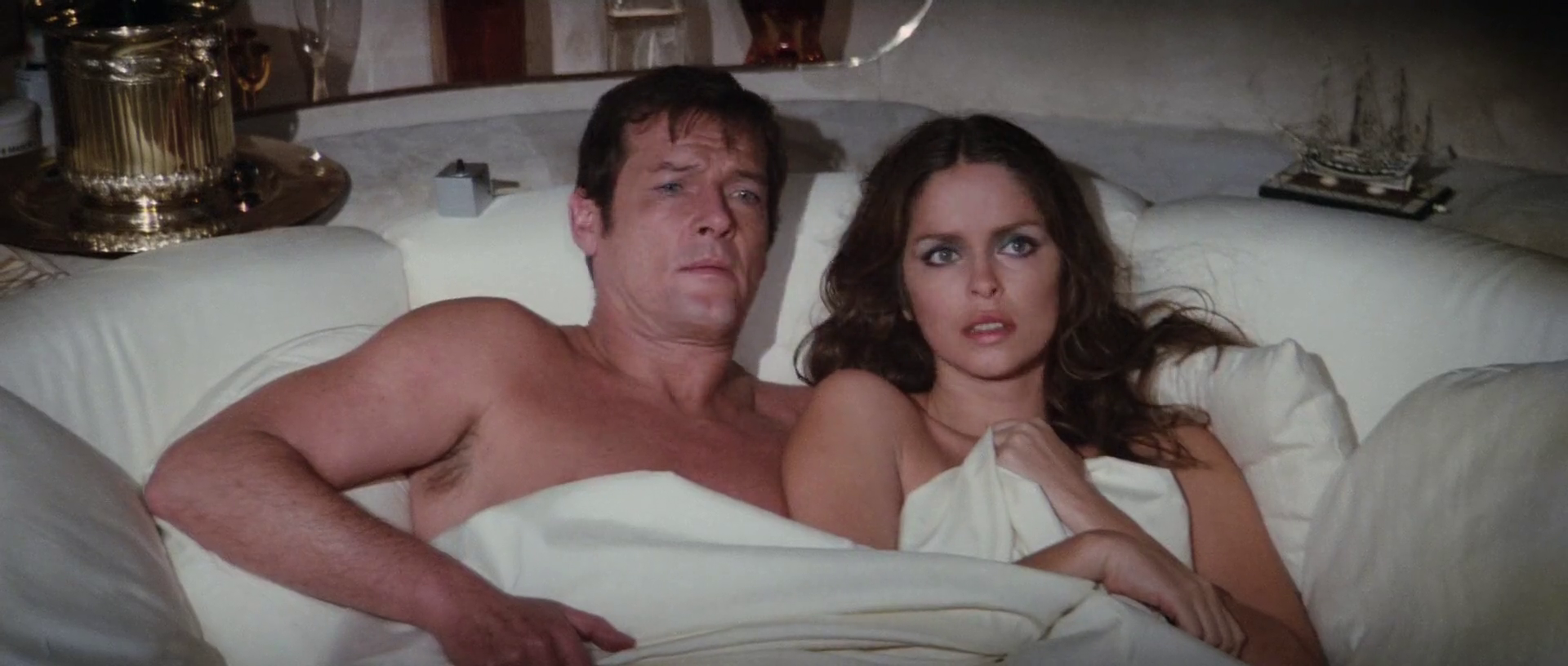
No comments:
Post a Comment